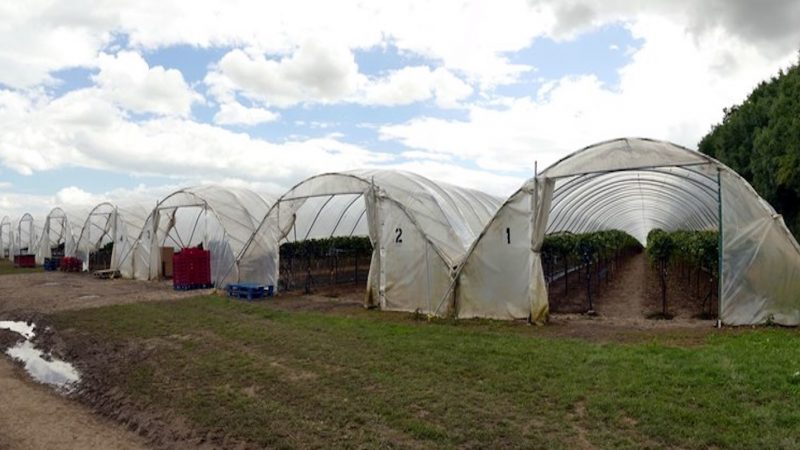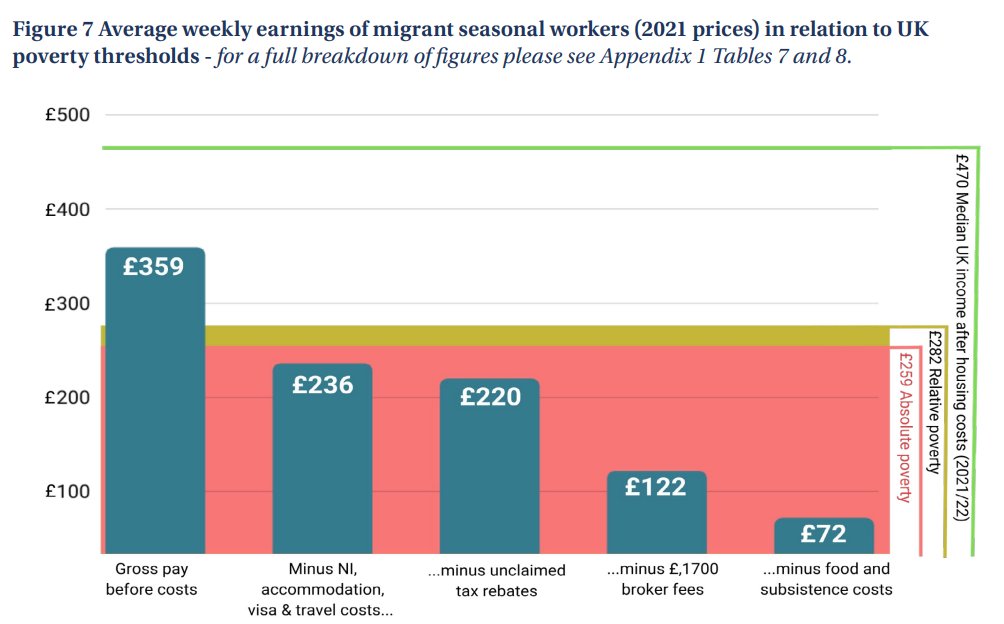New report adds further evidence of the 'degradation’ of working conditions in UK agriculture

New research has found the average experience of migrant workers who come to the UK to work in horticulture as part of the government’s seasonal visa scheme, is that of absolute poverty.
It follows mounting evidence of widespread potential for exploitation of overseas farm workers in the UK who face degrading working conditions having come over on the post-Brexit visa scheme.
Annual harvesting across the UK requires between 50,000 and 60,000 seasonal works, almost entirely hired from outside the UK. Many are recruited by the new Seasonal Worker Visa scheme introduced in 2019 as a temporary migration programme to address post-Brexit shortages.
However, a report by the Landworkers Alliance and New Economics Foundation (NEF) has revealed the average worker is typically earning less than £236 a week, after the cost of accommodation, national insurance, visa and travel costs is taken out of pay. Whist the average poverty threshold sits at £259 a week.
Their research estimated that the seasonal workers receive an average of just 7.6% of the retail price of certain food grown in the UK.
Christian Jaccarini, economist at NEF, said the research highlighted the harsh reality of the economic experience of workers in the country, which showed the true extent of poverty and hardship workers in the sector face and their vulnerability to exploitation.
“The average experience of migrant workers in the UK is absolute poverty,” Jaccarini told BBC Radio 4 Farming Today. “And this is what we find after analysing how the value created in the production, processing and distribution of fruit is shared amongst those in supply chains.”

Jaccarini went on to highlight how a worker picking soft fruit would retain just 8% of the total retail price of the produce, which he said, “contextualizes and puts into stark realization how little these workers get”.
The Bureau of Investigative Journalism has led the way in uncovering exploitation within the sector. Journalist Emiliano Mellino, along with three workers, gave evidence recently to the House of Lords horticulture committee on their experience of farm work and the UK’s seasonal worker visa scheme.
During the proceeding, one former worker, Sybil from South Africa, said workers ‘were not viewed as humans’ but as ‘chattel’ on the farms as workers were called by numbers not names and she compared the behaviour to one in a prison system.
Through their extensive investigation, the publication found many workers had paid £5,000 in recruitment fees and other costs, whilst other workers had racked up huge travel and visa costs and had been forced to take up loans from informal money lenders with high interest rates.
The Landworkers Alliance have laid out solutions to tackle the issues, including for the UK government to give countries where workers are being recruited from the opportunity to provide an authorised department or official organisation the ability to sponsor workers.
By providing an official public organisation, Landworkers Alliance said better checks for potential scams could take place and it would provide a safer and more regulated means of recruitment.
(Photo credit: Graham Hogg / Creative Commons)
Hannah Davenport is trade union reporter at Left Foot Forward
Left Foot Forward’s trade union reporting is supported by the Barry Amiel and Norman Melburn Trust


To reach hundreds of thousands of new readers we need to grow our donor base substantially.
That's why in 2024, we are seeking to generate 150 additional regular donors to support Left Foot Forward's work.
We still need another 117 people to donate to hit the target. You can help. Donate today.



